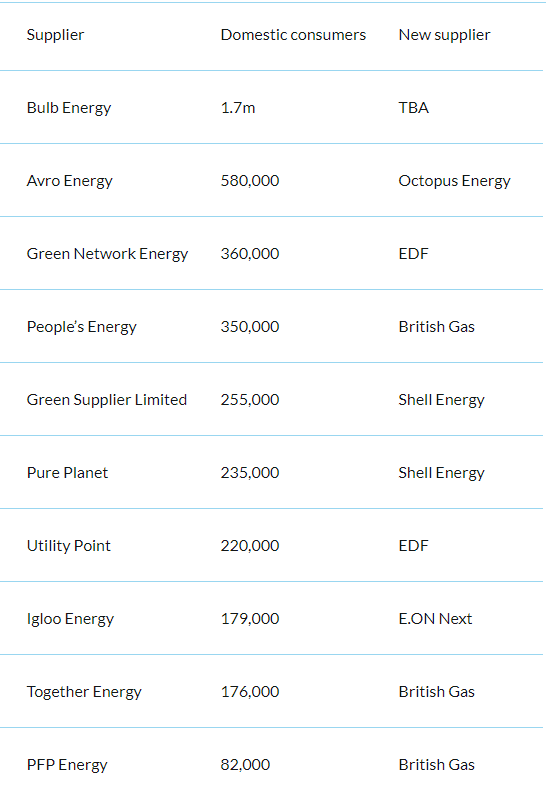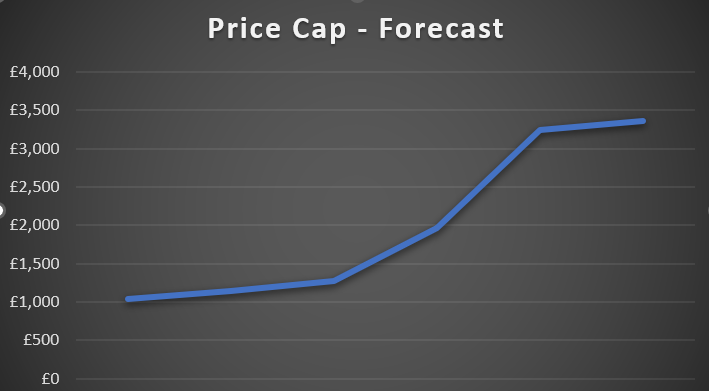Westminster committee sticks the boot into Ofgem as households suffer record energy bills

MPs have raised doubts over Ofgem’s ability to clean up the energy market, following mass carnage which saw over 30 suppliers collapse amid soaring wholesale costs, directly affecting over four million customers and driving energy bills to record highs.
The Business, Energy and Industrial Strategy Committee’s report on energy pricing and the future of the industry exposes Westminster scepticism towards the watchdog.
The report highlights concerns that if measures are poorly designed and executed, they risk further destabilising the market and distorting competition.
The committee compared the fallout in the energy sector to the banking crisis of 2008.
It noted that ministers and regulators believed deregulation would drive competition, but instead created an over- exposed and unregulated market which ultimately crashed, costing taxpayers billions of pounds.

Ofgem is pressing ahead with a major package of regulatory reforms to shore up the financial resilience of the market.
It has already introduced financial stress tests and fit and proper person rules.
The watchdog told City A.M. it welcomed the report and that it recognised the market was not previously robust enough.
A spokesperson said: “We commit to working closely with the committee, government and industry to make sure the balance of trade-offs across the board are carefully considered so that customers are prioritised throughout the current crisis and they have access to the government support they’re entitled to.”
Energy efficiency key alongside more household support
The report also argued that the Government should bring forward a fully-funded national campaign to insulate people’s homes to reduce the UK’s demand for energy.
It warns that helping customers pay their energy bills is not sustainable amid volatile gas prices, which are likely baked in for the coming years.
The BEIS Committee urges the Government to stop announcing short-term policies and moving existing budgets around and instead fully fund a national retrofit programme that businesses, homeowners, and tenants can invest and take part in.
It said: “With energy bills expected to stay above 2021 levels until 2030, the affordability challenge will persist without action to reduce household gas demand.”
The committee argued that such a programme is required not just to reduce the cost of energy in winter but to also keep homes cool in extreme heat, reduce the cost of cooling as well as heating, and help the country hit its net zero targets.
While it raised concerns over continued support packages over long-term improvements, the committee did believe the Government should immediately update its package of support to help households with soaring energy bills before the cost-of-living crisis grips even harder following October’s expected energy price cap increase,
It felt the size of the current support package has been ‘eclipsed by the scale of the crisis’.

Earlier this year former Chancellor Rishi Sunak unveiled plans to offer up £1.200 per year discounts for vulnerable energy users, which was designed when the forecast for the October price cap was £2,800.
However, the latest forecasts suggest the price cap could rise to £3,244 per year in October and peak at £3,363 per year in January.
It also wants support to be more targeted – noting current plans to offer at least £400 per year savings to everyone include homeowners who do not need help paying their energy bills.
In the longer-term, the report calls out the injustice of vulnerable people, who are unable to pay their energy bills, being moved on to more expensive prepayment meters.
The BEIS Committee has labelled this as “unacceptable” and urges the Government to consider replacing the market-wide price cap with a discounted social tariff for vulnerable customers, and a relative tariff for the rest of the market.
This would cap the difference between the cheapest and most expensive tariffs that any supplier offers.